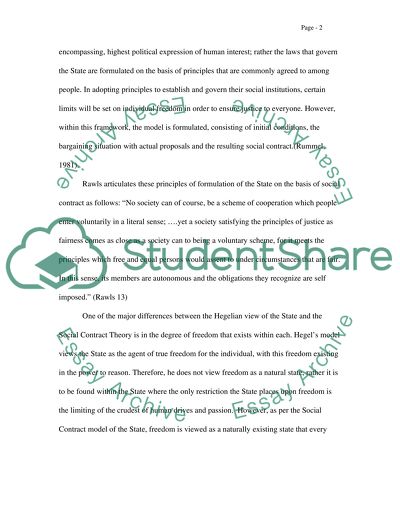Cite this document
(Social Contract and Hegels Model Essay Example | Topics and Well Written Essays - 1250 words, n.d.)
Social Contract and Hegels Model Essay Example | Topics and Well Written Essays - 1250 words. https://studentshare.org/philosophy/1541871-what-is-the-difference-between-the-social-contract-or-negative-freedommodel-of-the-state-and-hegels-own-model-of-it
Social Contract and Hegels Model Essay Example | Topics and Well Written Essays - 1250 words. https://studentshare.org/philosophy/1541871-what-is-the-difference-between-the-social-contract-or-negative-freedommodel-of-the-state-and-hegels-own-model-of-it
(Social Contract and Hegels Model Essay Example | Topics and Well Written Essays - 1250 Words)
Social Contract and Hegels Model Essay Example | Topics and Well Written Essays - 1250 Words. https://studentshare.org/philosophy/1541871-what-is-the-difference-between-the-social-contract-or-negative-freedommodel-of-the-state-and-hegels-own-model-of-it.
Social Contract and Hegels Model Essay Example | Topics and Well Written Essays - 1250 Words. https://studentshare.org/philosophy/1541871-what-is-the-difference-between-the-social-contract-or-negative-freedommodel-of-the-state-and-hegels-own-model-of-it.
“Social Contract and Hegels Model Essay Example | Topics and Well Written Essays - 1250 Words”. https://studentshare.org/philosophy/1541871-what-is-the-difference-between-the-social-contract-or-negative-freedommodel-of-the-state-and-hegels-own-model-of-it.


